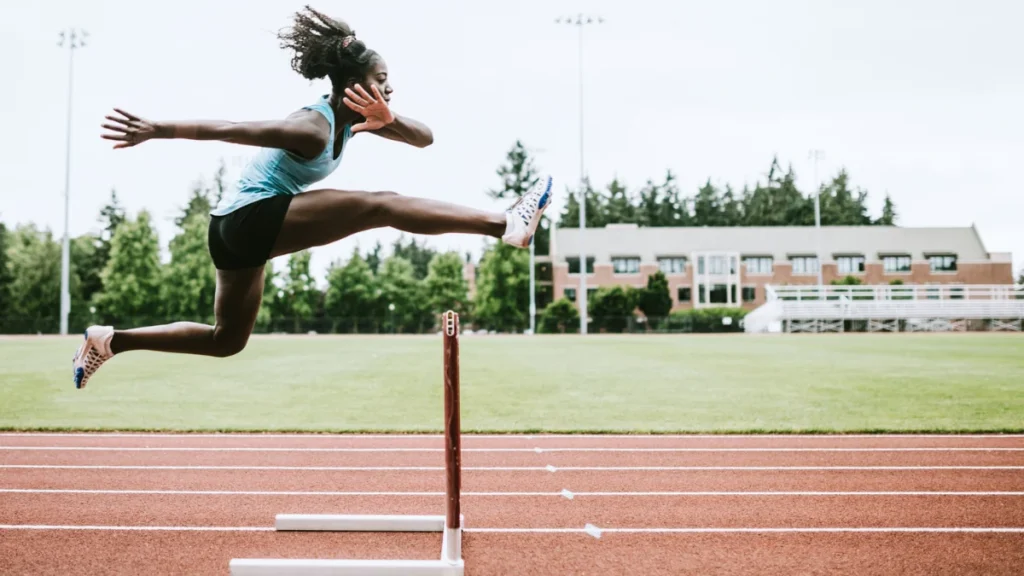Sports performance is a crucial element in any athlete’s journey towards success. It encompasses various aspects that contribute to an athlete’s ability to perform at their best. Whether you are a professional athlete or a recreational sports enthusiast, understanding the factors that influence sports performance can help you unlock your full potential.
The importance of peak performance in athletics
Peak performance is the state in which an athlete performs at their absolute best. It is the moment when all the hard work, dedication, and training come together to produce exceptional results. Achieving peak performance is vital for athletes as it can be the difference between winning and losing, breaking records, or falling short. It requires a combination of physical, mental, and emotional factors to align in perfect harmony.
Factors that contribute to sports performance
Sports performance is influenced by various factors, and understanding them is essential for athletes looking to enhance their performance. Physical fitness, technical skills, mental resilience, and emotional stability all play a significant role in an athlete’s ability to perform at their best. Additionally, external factors such as nutrition, rest, and recovery also impact sports performance.
The role of mindset in achieving peak performance
The mindset of an athlete is a powerful tool that can either propel them towards peak performance or hinder their progress. Developing a strong, positive mindset is essential for athletes looking to unlock their full potential. Mental resilience, focus, and self-belief are key attributes that can help athletes overcome challenges, stay motivated, and perform at their best even under pressure.
Techniques and strategies to enhance sports performance
There are various techniques and strategies that athletes can employ to enhance their sports performance. Setting clear goals, creating effective training plans, and utilizing visualization techniques are some of the ways athletes can optimize their performance. Additionally, incorporating mental skills training, such as mindfulness and positive self-talk, can also contribute to improved sports performance.
Nutrition and its impact on sports performance
Proper nutrition plays a crucial role in an athlete’s ability to perform at their best. Fueling the body with the right nutrients ensures optimal energy levels, enhanced recovery, and improved overall performance. A well-balanced diet that includes a combination of carbohydrates, proteins, healthy fats, and vitamins is essential for athletes to optimize their sports performance.
The role of rest and recovery in optimizing sports performance
Rest and recovery are often overlooked aspects of sports performance, but they are just as important as training and exercise. Giving the body sufficient time to recover and recharge is crucial for avoiding burnout, reducing the risk of injuries, and improving overall performance. Adequate sleep, active recovery, and incorporating relaxation techniques into one’s routine are all essential for optimizing sports performance.
The benefits of strength and conditioning training for athletes
Strength and conditioning training are integral components of an athlete’s training regimen. It aims to improve overall physical fitness, enhance performance, and reduce the risk of injuries. By focusing on building strength, power, agility, and endurance, athletes can take their sports performance to the next level. A well-designed strength and conditioning program tailored to an athlete’s specific needs can yield significant improvements in their performance.
The role of sports psychology in unlocking peak performance
Sports psychology is a field that focuses on the mental and emotional aspects of sports performance. It helps athletes develop mental skills and strategies to overcome challenges, manage stress, and perform at their best. Techniques such as visualization, goal setting, and managing pre-competition nerves are all part of sports psychology. Integrating sports psychology into an athlete’s training regimen can have a profound impact on their ability to unlock peak performance.
Case studies of athletes who have achieved peak performance
Numerous athletes have achieved peak performance in their respective sports, serving as inspiration for others. From Michael Phelps’ record-breaking Olympic performances to Serena Williams’ dominance in tennis, these athletes have showcased the power of unlocking peak performance. By studying their journeys, we can gain valuable insights into the strategies, mindset, and training that contribute to their success.
Conclusion
Unlocking peak performance requires a holistic approach that addresses all aspects of an athlete’s well-being. From physical fitness and technical skills to mental resilience and nutrition, each element plays a vital role in enhancing sports performance. By understanding these factors and implementing effective strategies, athletes can take their performance to the next level and achieve their goals.
FAQ’s
Q: How long does it take to achieve peak performance?
A: Achieving peak performance is a journey that varies for each athlete. It depends on various factors such as the athlete’s current level of fitness, experience, and dedication to training. Consistency, hard work, and patience are key in reaching peak performance.
Q: Can I enhance my sports performance without professional coaching?
A: While professional coaching can provide valuable guidance and expertise, it is possible to enhance sports performance without it. By understanding the key factors that contribute to performance, setting goals, and implementing effective training strategies, athletes can make significant improvements on their own.
Q: How important is mental resilience in sports performance?
A: Mental resilience is crucial in sports performance. It helps athletes overcome challenges, stay focused, and perform at their best even under pressure. Developing mental resilience through techniques such as visualization, positive self-talk, and goal setting can have a profound impact on an athlete’s performance.

